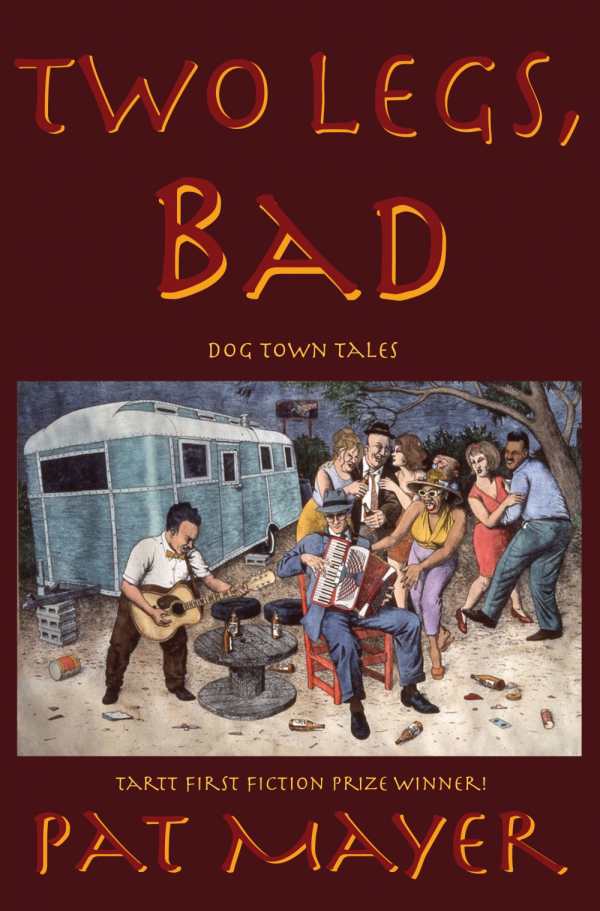
Two Legs, Bad
Dogtown Tales
Southern Gothic short stories weave dark humor into the lives of bizarre and emotionally deep characters.
Pat Mayer, Pushcart Prize nominee, employs pyromaniacs, schizophrenics, and other eccentrics to explore the South’s cultural character in the Tratt First Fiction Award winner Two Legs, Bad: Dog Town Tales, her stellar collection of short stories set in the Delta.
There’s the troubled kid from a broken home who idolizes the inventor of the atomic bomb and only finds joy in fire. In another story, a mentally ill woman in an abusive marriage hears the voice of a Russian chess player, who outlines the moves she needs to maneuver to find herself again. A modern tale of revenge follows an ostracized lesbian who gets back at her small town by helping a Walmart move in and suck up all the small businesses.
These are fantastic premises, but Mayer’s real strengths exist much deeper. Her characters behave peculiarly, as if all that swampy heat has clouded their hearts and brains. The writing is not only sharp but also melodic, a nod perhaps to the Southern oral tradition of telling tall tales.
Mayer artfully weaves humor into dark themes. Take her story about a morbidly obese woman who chokes to death on fried chicken at a church dinner. Mayer writes that the woman had been “digging her grave with a knife and fork for years.” She sketches out the humorless Reverend as a “colorless little vicar able to throw a wet blanket the entire length of a room,” and his wife is “no blond” but a “cross between a brunette and a drugstore.”
It’s no wonder that Mayer won first place in the 2007 International Limerick competition; that same sense of word play and dark humor drives Two Legs, Bad. Despite the fun of her eccentrics and the power of her rich descriptions, the dozen stories also pack an emotional punch. “Mamma says the human soul is a cup of sadness,” she writes in “Hunger A Love Story.” “When you cry enough tears to fill the cup, you die. Happiness doesn’t fulfill your soul, only grief can do that.”
Reviewed by
Amanda McCorquodale
Disclosure: This article is not an endorsement, but a review. The publisher of this book provided free copies of the book to have their book reviewed by a professional reviewer. No fee was paid by the publisher for this review. Foreword Reviews only recommends books that we love. Foreword Magazine, Inc. is disclosing this in accordance with the Federal Trade Commission’s 16 CFR, Part 255.
